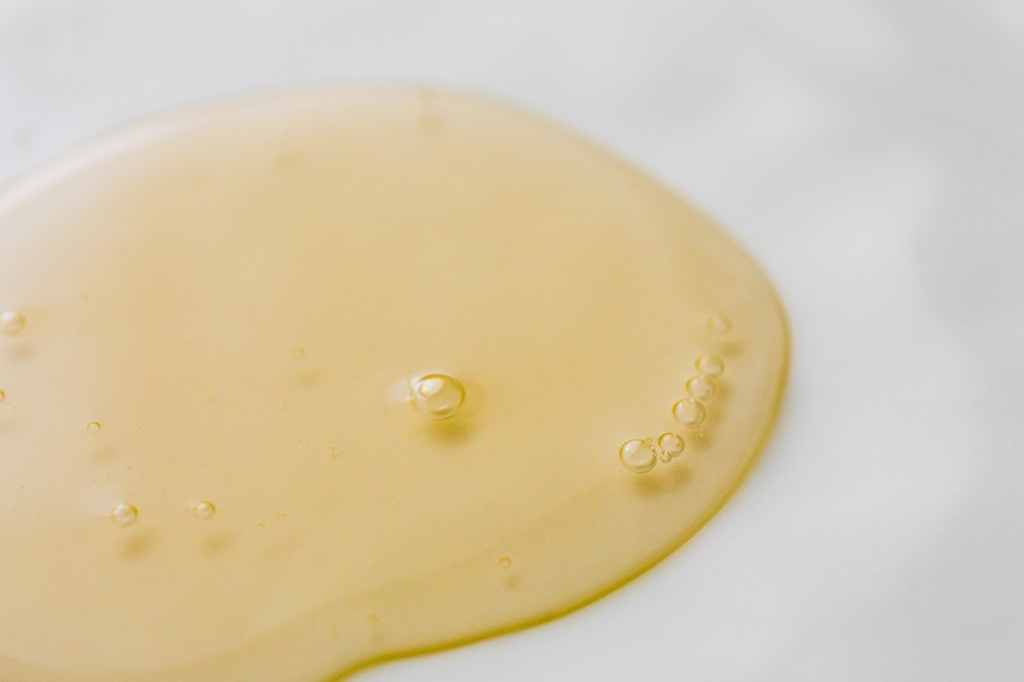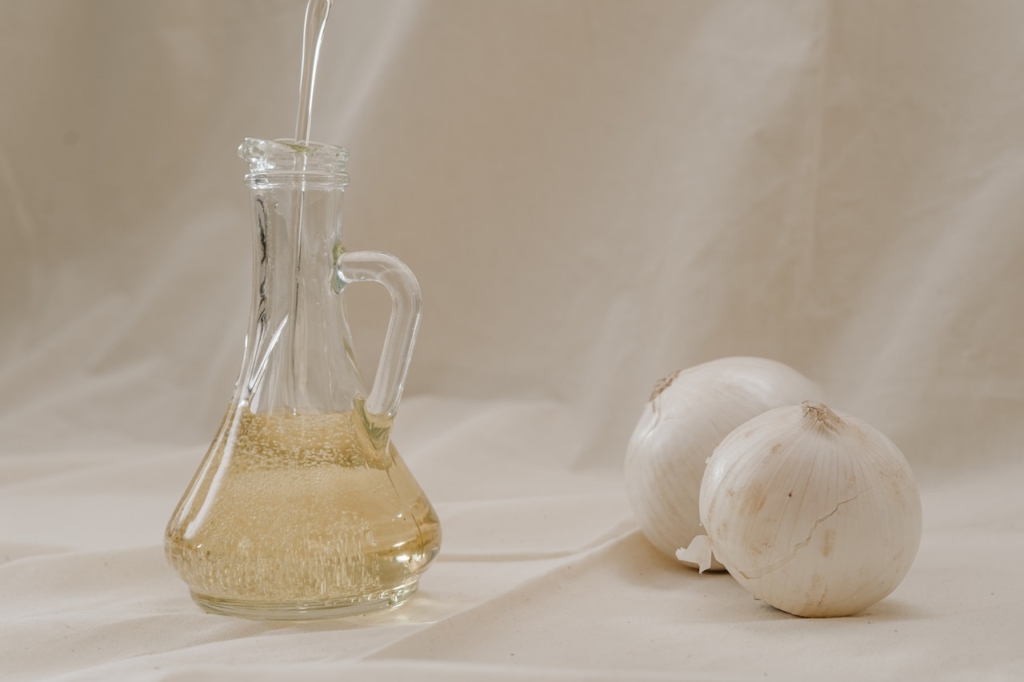Garlic has been used for medicinal purposes for centuries, and has been shown to have antibacterial, antiviral, and anti-inflammatory properties. One of the ways garlic can be used is to make garlic oil, which can be used to treat ear infections. Garlic oil is a natural remedy that can be made easily at home and has been found to be effective in treating ear infections.
Understanding ear infections is important in order to understand how garlic oil can be used to treat them. Ear infections occur when bacteria or viruses enter the ear and cause inflammation. This can lead to pain, discomfort, and even hearing loss. While antibiotics are often prescribed to treat ear infections, natural remedies like garlic oil can be a safe and effective alternative.
Key Takeaways
- Garlic oil is a natural remedy that can be used to treat ear infections.
- Ear infections occur when bacteria or viruses enter the ear and cause inflammation.
- Garlic oil can be a safe and effective alternative to antibiotics for treating ear infections.
Understanding Ear Infections
Ear infections, also known as otitis media, are a common condition that affects the middle ear. This condition can be caused by viruses or bacteria, and it occurs more frequently in children than in adults.
There are three types of ear infections:
- Acute otitis media: This is the most common type of ear infection and it occurs when fluid builds up in the middle ear due to a blockage in the Eustachian tube. This blockage can be caused by a cold, flu, or allergies.
- Chronic otitis media: This type of ear infection occurs when fluid remains in the middle ear for an extended period of time, leading to inflammation and damage to the eardrum and middle ear bones.
- Inner ear infections: These infections occur in the inner ear and can cause dizziness, nausea, and hearing loss. Inner ear infections are usually caused by viruses and are less common than middle ear infections.
Bacteria are the most common cause of ear infections, and antibiotics such as amoxicillin are often prescribed to treat them. However, not all ear infections are caused by bacteria, and antibiotics may not be necessary in these cases.
It is important to seek medical attention if you suspect you or your child has an ear infection. Symptoms include ear pain, fever, difficulty hearing, and drainage from the ear. Prompt treatment can help prevent complications and reduce the risk of recurrent infections.
Garlic and Its Health Benefits
Garlic is a commonly used herb in cooking that has been known for its medicinal properties for centuries. It has been used to treat various ailments, including ear infections, due to its antibacterial, antiviral, and antifungal properties. Garlic contains high levels of antioxidants and anti-inflammatory properties, making it an excellent addition to a healthy diet.
The active ingredient in garlic is called allicin, which is responsible for its strong odor and many of its health benefits. Allicin is formed when garlic is crushed or chopped, and it is a sulfur-containing compound that has been shown to have antibacterial, antiviral, and antifungal properties.
Garlic is also a rich source of vitamin C, which is essential for a healthy immune system. It contains selenium, a mineral that has been shown to have anti-inflammatory properties and may help reduce the risk of certain types of cancer. Allium sativum, the scientific name for garlic, is a member of the Allium family, which also includes onions, shallots, and leeks.
Overall, garlic is a versatile herb that can be used in many different dishes to add flavor and provide numerous health benefits. It is easy to incorporate into your diet, and its many properties make it an excellent choice for those looking to boost their immune system and improve their overall health.
Garlic Oil for Ear Infections
Garlic is a natural remedy that has been used for centuries to treat various ailments. Garlic oil is a popular home remedy for ear infections due to its antibiotic and anti-inflammatory properties. It can be used to relieve the pain and discomfort associated with ear infections.
To make garlic oil, one can crush a few cloves of garlic and mix them with olive oil. The mixture is then heated on low heat for a few minutes until the garlic becomes fragrant. The oil is then strained and stored in a clean, dry container.
Garlic oil can be used as ear drops by placing a few drops in the affected ear. It is important to warm the oil before use by placing the bottle in warm water for a few minutes. One can also make homemade garlic oil ear drops by mixing the garlic oil with equal parts of coconut oil or almond oil.
While garlic oil can be an effective home remedy for ear infections, it is important to note that it should not be used as a substitute for medical treatment. It is always recommended to consult a healthcare professional for proper diagnosis and treatment of ear infections.
In summary, garlic oil is a natural and effective remedy for ear infections due to its antibiotic and anti-inflammatory properties. It can be easily made at home and used as ear drops to relieve pain and discomfort. However, it should not be used as a substitute for medical treatment.
Preparing Garlic Oil at Home
Garlic oil is a natural remedy that can be used to treat ear infections. It is easy to make at home using a few simple ingredients. Here is a recipe for making garlic oil:
Recipe
- 1 whole clove of garlic
- 1/4 cup of extra virgin olive oil, coconut oil, sesame oil, or mustard oil
- Glass bottle with dropper
DIY Steps
- Peel and chop the garlic into small pieces.
- Place the garlic and oil in a small saucepan.
- Heat the mixture on low heat for 30 minutes.
- Remove from heat and let cool for 10 minutes.
- Strain the garlic pieces from the oil using a fine mesh strainer or cheesecloth.
- Pour the oil into a glass bottle with a dropper.
Garlic oil can be stored at room temperature for up to one month. It is important to use a glass bottle, as plastic can leach chemicals into the oil.
When using garlic oil for an ear infection, warm the oil slightly by placing the bottle in a cup of warm water. Use the dropper to place a few drops of oil into the affected ear. Tilt the head to one side and allow the oil to sit in the ear for several minutes before draining.
Garlic oil is a safe and effective remedy for ear infections. However, it is important to consult with a healthcare professional before using any home remedies.
How to Use Garlic Oil for Ear Infections
Garlic oil is a natural remedy that has been used for centuries to treat ear infections. It contains antibacterial and antiviral properties that can help to reduce inflammation and fight off infections. Here’s how to use garlic oil for ear infections:
- Warm the garlic oil: Place the bottle of garlic oil in warm water for a few minutes to warm it up. You can also warm the oil by holding the bottle in your hand for a few minutes.
- Lie down: Lie down on your side with the affected ear facing up.
- Apply the garlic oil: Use a dropper to apply a few drops of garlic oil into the ear canal. Gently massage the area around the ear to help the oil penetrate deeper.
- Place a cotton ball: Place a cotton ball into the ear to prevent the oil from leaking out.
- Stay still: Stay in this position for 5-10 minutes to allow the garlic oil to work its way into the ear canal.
- Remove the cotton ball: After 10 minutes, remove the cotton ball and gently wipe away any excess oil.
- Repeat: Repeat this process 2-3 times per day until the infection clears up.
It’s important to note that if you have a ruptured eardrum or severe earaches, you should avoid using garlic oil or any other home remedy without consulting a doctor. Garlic oil can also cause discomfort or irritation in some people, so be sure to stop using it if you experience any pain or discomfort. If you need pain relief, you can take an over-the-counter pain reliever or use an anesthetic ear drop as directed by your doctor.
Additional Natural Remedies for Ear Infections
In addition to garlic oil, there are several other natural remedies that can help alleviate the symptoms of ear infections. Here are a few options to consider:
Mullein
Mullein is a plant that has been used for centuries to treat ear infections. It has anti-inflammatory and analgesic properties that can help reduce pain and swelling. To use mullein for ear infections, you can make an oil infusion by steeping the flowers in olive oil for several weeks. Once the oil is ready, you can strain it and use it as ear drops.
Calendula
Calendula is another herb that has anti-inflammatory and antimicrobial properties. It can help reduce inflammation and fight off infection. You can use calendula in a variety of ways, including making a tea to drink or using it as a compress on the affected ear.
Calendula Salve
Calendula salve is a topical ointment made from calendula flowers and other natural ingredients. It can be used to soothe irritated skin and reduce inflammation. You can apply the salve around the ear to help alleviate pain and discomfort.
Essential Oils
Essential oils like tea tree, lavender, and chamomile have anti-inflammatory and antimicrobial properties that can help fight off infection and reduce inflammation. You can dilute the oils in a carrier oil like coconut or olive oil and apply them to the affected ear.
Cold Compress
A cold compress can help reduce pain and swelling in the ear. You can use a cold pack or wrap a bag of ice in a towel and hold it against the affected ear for 10-15 minutes at a time.
Neck Exercises
Some ear infections are caused by a buildup of fluid in the ear due to poor drainage. Neck exercises like tilting your head to the side and gently pulling on your earlobe can help promote drainage and reduce the risk of infection.
Ear Tubes
For chronic ear infections, ear tubes may be recommended by a doctor. Ear tubes are small, plastic tubes that are inserted into the ear to help drain fluid and prevent infections.
Overall, there are several natural remedies and treatments that can help alleviate the symptoms of ear infections. It’s important to consult with a healthcare professional before trying any new treatments, especially if you have a severe or chronic ear infection.
Precautions and Potential Risks
While garlic oil is generally safe to use, there are a few precautions and potential risks to keep in mind before using it to treat an ear infection.
One of the main concerns is the risk of botulism, which is a rare but serious type of food poisoning caused by the Clostridium botulinum bacteria. This bacteria can grow in improperly prepared garlic-infused oils and can produce toxins that can cause paralysis and even death. To reduce the risk of botulism, it’s important to follow proper preparation and storage methods when making garlic oil.
Another potential risk of using garlic oil is that it may cause an allergic reaction in some people. Symptoms of an allergic reaction may include fever, rash, and difficulty breathing. If you experience any of these symptoms after using garlic oil, stop using it immediately and seek medical attention.
Garlic oil may also lower blood pressure, which can be beneficial for some people but may be a concern for those with low blood pressure or who are taking medications to lower their blood pressure. If you have any concerns about using garlic oil, it’s best to consult with your healthcare provider before using it.
Finally, it’s important to note that while garlic oil may have some health benefits, there is no scientific evidence to support claims that it can cure or prevent acne or cancer. As with any natural remedy, it’s important to use garlic oil as a supplement to, rather than a replacement for, traditional medical treatments.
Frequently Asked Questions
How can I make garlic oil for ear infections at home?
Garlic oil can be easily made at home by following a few simple steps. All you need is fresh garlic cloves and olive oil. Crush the garlic cloves and mix them with olive oil. Heat the mixture on low heat for about 30 minutes. Strain the mixture and let it cool before using it.
What are the steps to make garlic oil for earaches?
To make garlic oil for earaches, follow these steps:
- Crush a few garlic cloves.
- Mix the crushed garlic with olive oil.
- Heat the mixture on low heat for about 30 minutes.
- Strain the mixture and let it cool.
- Use a dropper to put a few drops of the oil into the ear.
Can garlic oil be used to treat ear infections?
Garlic oil has been used for centuries to treat ear infections. It has antimicrobial properties that can help fight off bacteria and fungi that cause ear infections. However, it is important to consult with a healthcare provider before using garlic oil to treat an ear infection.
What are the benefits of using garlic oil for ear infections?
Garlic oil has several benefits when used to treat ear infections. It can help reduce inflammation, relieve pain, and fight off bacteria and fungi. It is also a natural remedy that does not contain any harmful chemicals or additives.
How long does it take for garlic oil to work on ear infections?
The time it takes for garlic oil to work on ear infections varies from person to person. Some people may notice improvement within a few hours of using garlic oil, while others may take a few days to see results. It is important to use garlic oil as directed and to consult with a healthcare provider if symptoms persist.
Are there any precautions I should take when using garlic oil for ear infections?
While garlic oil is generally safe to use, there are a few precautions you should take. Do not use garlic oil if you have a perforated eardrum or if you are allergic to garlic. Always use fresh garlic and olive oil to make the oil. Do not use garlic oil if it has a foul smell or if it appears to be contaminated.



